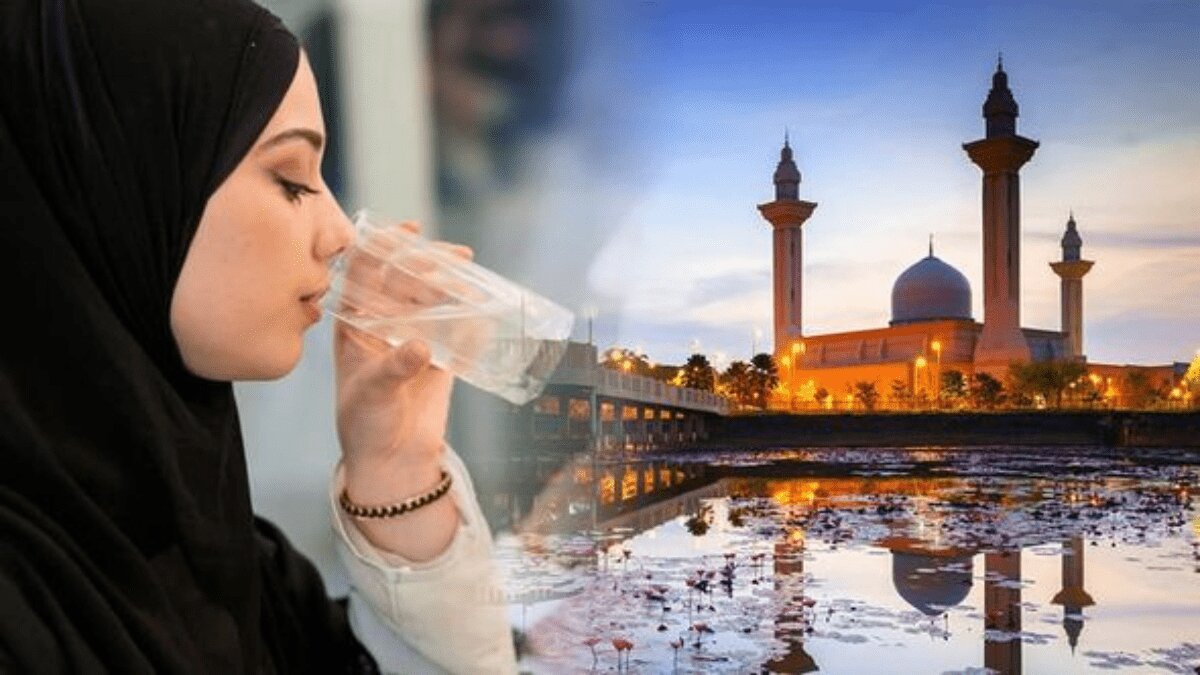Ramadan, the holy month observed by Muslims worldwide, is a time of spiritual reflection, increased devotion, and fasting from dawn until sunset. Fasting during Ramadan involves abstaining from food and drink for extended periods, presenting challenges in maintaining hydration levels throughout the day. However, with mindful strategies and conscious efforts, it is possible to keep water in your system while fasting. Here’s a detailed guide on how to stay hydrated during Ramadan:
1. Suhoor Hydration: Suhoor, the pre-dawn meal, plays a crucial role in preparing the body for the fast ahead. Start your day with hydrating foods and beverages to replenish fluids lost during the night. Drink plenty of water, herbal teas, and fruit juices to hydrate your body and boost energy levels for the day.
2. Hydrating Foods: Incorporate hydrating foods into your Suhoor and Iftar meals to supplement fluid intake. Fruits and vegetables with high water content, such as watermelon, cucumbers, oranges, grapes, and tomatoes, provide hydration while offering essential nutrients and vitamins.
3. Electrolyte Balance: During non-fasting hours, prioritize foods and beverages that help maintain electrolyte balance. Coconut water, sports drinks, and homemade electrolyte solutions are excellent choices for replenishing minerals lost through sweating and ensuring proper hydration.
4. Sip Water Slowly at Iftar: When breaking your fast at sunset (Iftar), avoid consuming large quantities of water all at once. Instead, sip water slowly and steadily to rehydrate your body without overwhelming your digestive system. This approach allows for better absorption of fluids and prevents discomfort.
5. Avoid Dehydrating Foods and Beverages: Steer clear of foods and drinks that can contribute to dehydration, such as caffeinated beverages, salty snacks, and sugary treats. These items can increase thirst and leave you feeling parched throughout the day. Opt for hydrating options that support overall well-being.
6. Distribution of Fluid Intake: Throughout the non-fasting hours, aim to distribute your fluid intake evenly to prevent dehydration. Keep a water bottle or container of fluids nearby, and take regular sips to maintain hydration levels without overloading your stomach.
7. Monitor Hydration Levels: Listen to your body’s signals and monitor signs of dehydration, such as dry mouth, dark urine, fatigue, and dizziness. If you experience any of these symptoms, prioritize rehydration by drinking water and consuming hydrating foods to restore fluid balance.
8. Herbal Teas and Infusions: Enjoy herbal teas and infusions during non-fasting hours as an alternative to water. Herbal teas such as chamomile, peppermint, and hibiscus are caffeine-free and can contribute to hydration while providing soothing benefits for digestion and relaxation.
9. Limit Physical Exertion: Schedule intense physical activities or outdoor exercises during cooler times of the day to minimize fluid loss through sweating. Engage in gentle activities like walking or light stretching to conserve energy and reduce thirst.
10. Rest and Shade: Seek shade and rest whenever possible, especially during peak sunlight hours, to avoid excessive sun exposure and dehydration. Taking breaks in shaded areas can help regulate body temperature and prevent fluid loss.
In conclusion, staying hydrated during Ramadan is essential for maintaining overall health and well-being while observing the fast. By incorporating these strategies into your daily routine and being mindful of hydration needs, you can effectively keep water in your system while fasting and fully embrace the spiritual journey of Ramadan. Ramadan Mubarak!


